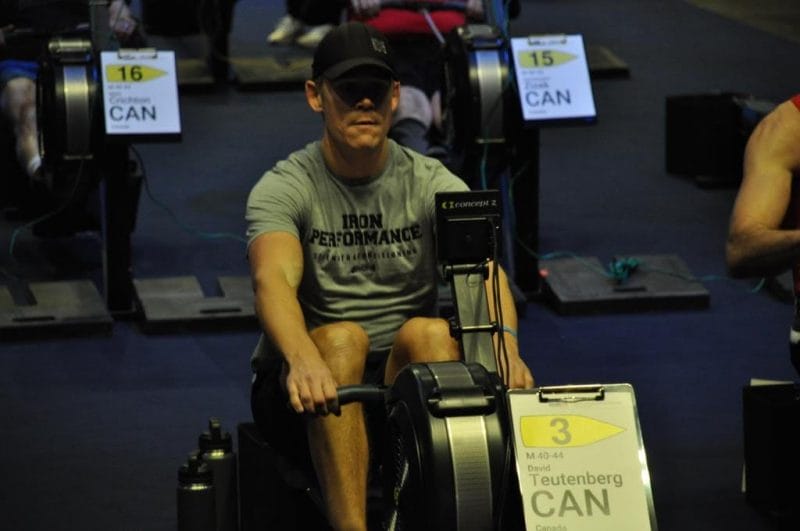Man oh man, I love this time of year. For context, it’s the end of January and many of our teams are right in the thick of things. It can be an extremely stressful time for many of our athletes as they prepare for the postseason. Practices are sharper, games have more weight and the pressure to remain consistent looms overhead. On top of that, many of them are wrapping up exams and starting new school semesters.
Being in the business of stress management (it’s literally what we do), these demands and factors are not lost on us. We notice a very obvious change in many of our athletes, both high school and college, during these final 90 days of the season. For us as physical preparation specialists, it’s a very fine balance of implementing a minimum effective dose needed for performance with a maximal effort attitude to carry it out. The mental aspect is a huge component.
The most challenging aspect I’ve found as a coach is separating a weak mind from its body. I know this sounds cryptic but I’ll elaborate. During these final 90 days, the focus becomes optimizing recovery. This means keeping the volume low, the intent high and the skills sharp. It does NOT translate to skipping the work.
I get it, the time of year is stressful. We’ve accounted for these factors as best possible and evaluate on a case by case basis. However, we (as a team) still have a job to do. Too many parents (and sometimes coaches) see these stresses and immediately pull back too far. While it may be well intentioned, it enables athletes to think of themselves as fragile. Instead of being solution driven, we become excuse dependent.
We use the term “move dirt” or “stack bricks”. What does this mean? It means “do something”. Do literally ANYTHING to get better. Why? Because winning isn’t romantic and it certainly isn’t pretty. The idea of winning and being successful appears magnificent in the distance, but when you look down at the path, the bricks are bloody. It takes hard work and sacrifice to lay those bricks everyday.
To become successful is an extremely ugly process; it’s painful on multiple fronts. What’s worse is that it isn’t even guaranteed. We have to remember that winning is simply a by-product of a process executed consistently with the ability to adapt to adversity. The more refined your process, the less likely you are to fail. I’ll say it again because it’s important. You are likely to fail, you’re simply working to decrease your odds.
We work with multiple teams and multiple individuals on their journeys. We constantly strive to create a culture of excellence; a fine tuned process tends to create future success. However, this is always easier said than done. Much of the time, we tend to talk about what it takes to build a winning tradition, yet, never seem to uphold one. A culture of excellence is like a plant; you need to water it, ensure sunlight, tend to the soil and remove dead roots. If left to its own devices, it is bound to die. When creating a culture, we tend to focus on a few key points. These are elaborated below.
VISION
First and foremost, we need to establish a vision. Take the time to sit down as a team and discuss what we want to accomplish as a unit. Be as specific as possible. A few sample questions may include:
- What are we looking to achieve as a team?
- What does this look like?
- What objective measures reflect successful action towards the vision?
- What objective measures reflect negative impacts on the vision?
- When do we reassess?
- How do we communicate the vision to our athletes?
- How do we communicate issues amongst ourselves?
- How do we uphold the vision?
There are many ways to set a vision for the team. Everyone is going to likely have different expectations or definitions of what the vision looks like to them. The most important thing is agreeing to a common theme and the actions necessary to uphold it. The “upholding” part is usually the hardest.
EXECUTION
Carrying out the vision is creating and maintaining the new standard. What are we doing day to day to get one step closer to our objectives? The execution is never perfect, but actions must be frequent. Bricks can take many shapes just as there are many facets of a winning culture. While there is flexibility, there must be consistency. Some thoughts when “stacking bricks”:
- Prioritize Your Focuses
- Practices/Games
- Recovery
- Supplemental Training
- Film
- Individual Skill Work
- Organize Your Schedule
- School
- Work
- Practices/Games
- Lifts
Help your athletes understand the actions and efforts needed to move closer towards the objective. Help them understand that there will be adversity and stress and how to better manage those factors ahead of time. Make it clear that there is always something we can do to get just a little bit closer to our goals. If we aren’t moving forward, we are indeed going nowhere.
ACCOUNTABILITY
This is the most important part of a successful culture, so naturally it is also the hardest facet to implement. We need every single person associated with our vision to uphold the standard of expectation. We need to hold ourselves and each other accountable.
This can be an extremely touchy subject to breach with some folks. We can all agree that we’d rather be solution driven instead of excuse dependent; I don’t think anyone would disagree. The problem is that adversity has different magnitudes and is open to interpretation. The balance of being flexible yet firm is a huge challenge and can be the downfall of many teams. We must do our best to remain as objective as possible and evaluate on a case by case basis.
At the end of the day, there are always going to be reasons why things cannot get done. Regardless of its justification, the objective reality will state that the task or requirement was not accomplished. This may seem heartless, but it’s the truth. If we are to create accountability within our team and amongst our athletes, we must hold them accountable to the truth. We must be solution driven.
Time management is critical and should be discussed when addressing accountability. We are living in a world where distractions and, unfortunately, excuses are all around our student-athletes. What’s worse is that parents (and even coaches) sometimes condone these excuses. While it may seem well intentioned, it simply enables them to justify an excuse without consequence. We need to ask “how can I” instead of settling for “I can’t because”. For example:
- I have class during practice, when can I make it up?
- I have to study for this exam, what if I woke up earlier or stayed up later to do that?
- Work called me in tonight, can I come to the lift earlier?
- I hurt my ankle, what can I do with my upper body?
- I am sick in bed, what film can I watch to prepare for the next game?
Individual accountability is crucial, but how do we hold each other accountable? Is it our responsibility to do so? Absolutely. Remember, we are a team. You can be the best player on the court or field, but you hold the same L or W as your teammates. It is everyone’s responsibility to hold each other accountable to the standard set and agreed upon.
Now, this doesn’t mean being an a**. Holding each other accountable isn’t an open invitation to assert dominance over your teammates or have some pseudo superiority complex. Holding each other accountable comes from a place of love; it is caring enough about each other to not let them fall victim to actions that may hinder their path towards success. It is the literal definition of tough love.
ADAPTABILITY
The final piece is our ability to adapt to adversity in all its forms. This includes tougher games, injured athletes, unexpected life events and everything in between. While there is structure, there is also flexibility. The trick is not to throw the baby out with the bath water.
When we set the vision, remember we set benchmarks to re-assess and the red flags that may signal it’s time to adjust. This is where this step is important. We may have certain strategies heading into a game and then be totally smacked when it doesn’t go as planned. Perhaps we had a phase planned for lift but the last one didn’t go how we thought. Don’t panic.
After a loss or poor performance, there tends to be a ton of emotion involved. We first need to detach from the situation in order to adapt our process moving forward. This will also help athletes that tend to get in their own heads a lot as well. Have them take a deep breath and cue the word “detach”. Have them pretend they are watching their performance from the sidelines and take an objective approach. Have them dissect the action step by step and pinpoint the chaotic variables that hindered them. From there, play out the tactics that would have likely (nothing guaranteed) led to a better outcome and have them rehearse it. In most instances, this calm approach is more tactile and solidifies a strategy for next time.
By detaching emotionally, we better recognize the obstacles for what they are and are better able to devise a strategy to reduce likelihood of failure in future. We cannot use sound logic or realism if clouded by emotion. This flexible approach helps us adapt our bricks to stack on the road to victory.


